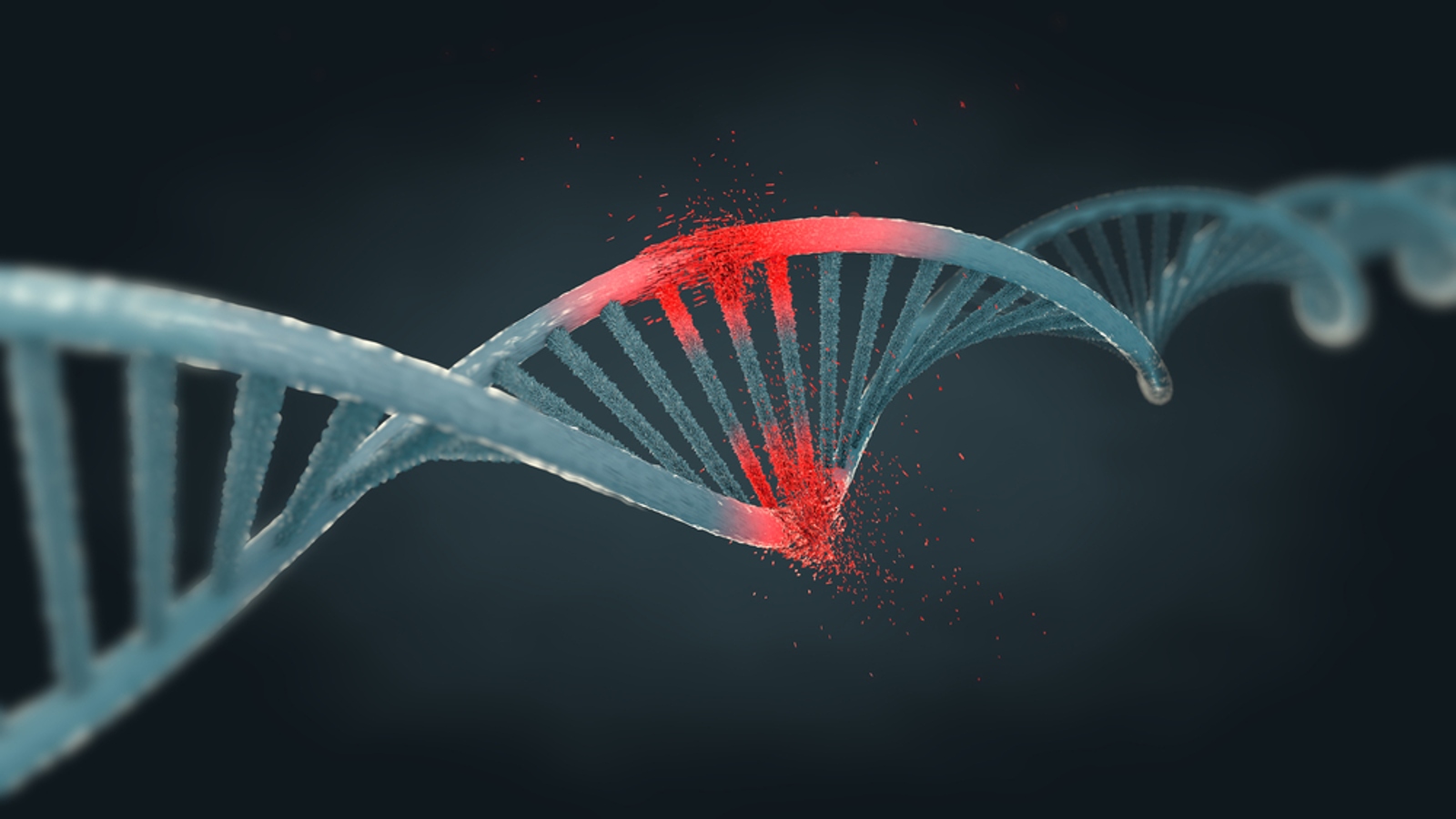Australia's 'worst female serial killer' freed after her children's deadly gene mutations come to light
New research has revealed that the children of Kathleen Folbigg each had genetic mutations that could explain their deaths.
Get the world’s most fascinating discoveries delivered straight to your inbox.
You are now subscribed
Your newsletter sign-up was successful
Want to add more newsletters?

Delivered Daily
Daily Newsletter
Sign up for the latest discoveries, groundbreaking research and fascinating breakthroughs that impact you and the wider world direct to your inbox.

Once a week
Life's Little Mysteries
Feed your curiosity with an exclusive mystery every week, solved with science and delivered direct to your inbox before it's seen anywhere else.

Once a week
How It Works
Sign up to our free science & technology newsletter for your weekly fix of fascinating articles, quick quizzes, amazing images, and more

Delivered daily
Space.com Newsletter
Breaking space news, the latest updates on rocket launches, skywatching events and more!

Once a month
Watch This Space
Sign up to our monthly entertainment newsletter to keep up with all our coverage of the latest sci-fi and space movies, tv shows, games and books.

Once a week
Night Sky This Week
Discover this week's must-see night sky events, moon phases, and stunning astrophotos. Sign up for our skywatching newsletter and explore the universe with us!
Join the club
Get full access to premium articles, exclusive features and a growing list of member rewards.
A woman in Australia who spent 20 years in prison after being convicted of killing her four children has been released after new DNA evidence showed that all of the children, who died as infants over a 10 year period, possessed genetic mutations that could explain their deaths. In her initial conviction, there had been no physical evidence to suggest she'd killed the infants.
Kathleen Folbigg, a 55-year-old woman from New South Wales (NSW), was accused of murdering her two daughters, Sarah and Laura, and son Patrick, as well as committing manslaughter against her other son, Caleb, between 1989 and 1999. In 2003, Folbigg was sentenced to 25 years in a maximum-security prison, where she remained until her release earlier this month. Due to the nature of her alleged crimes, the media nicknamed Folbigg "Australia's worst female serial killer."
But on June 5, 2023, Folbigg was pardoned by NSW Gov. Margaret Beazley and was released from prison after evidence presented at a recent inquiry suggested that her children most likely died of natural causes. The inquiry, which began in 2022, revealed that both of Folbigg's daughters had an extremely rare and previously unknown mutation of the CALM2 gene, key for shuttling calcium through tissues, that can cause sudden cardiac arrest. Meanwhile, both of Folbigg's sons carried a mutation of the BSN gene, needed to build functional brain cells, which has been linked to an early onset and lethal form of epilepsy.
The Folbigg case has been described as "one of Australia's greatest miscarriages of justice," according to the BBC.
Related: 10 bizarre medical case reports from 2022
Circumstantial conviction
All of the Folbigg children died in their sleep when they were between 19 days and 18 months old. The first death, that of Caleb, was initially attributed to sudden infant death syndrome (SIDS). The subsequent death of his brother Patrick was never determined, although Patrick did experience seizures in the months leading up to his death, according to the BBC.
However, the later deaths of Sarah and then Laura, whose sudden deaths could not be explained either, sparked speculation that Folbigg may have smothered each of her children to death. The accusations heavily affected Folbigg's personal life: In 2000, she was divorced by the children's father, Craig Gibson, who believed she had killed their children In 2001, she was arrested and later convicted in a nationally scrutinized trial that lasted seven weeks. Her initial sentence was 40 years but was reduced on appeal.
Get the world’s most fascinating discoveries delivered straight to your inbox.
There was never any physical evidence that Folbigg had smothered her children. However, in a personal diary entry that Gibson provided to the police, Folbigg described how the "guilt about them all haunts me," which was used by prosecutors to infer her guilt despite the defense arguing that this was circumstantial evidence, according to the BBC.
Over the past three decades, Folbigg has continually denied that she killed her children and has had multiple appeals denied.
New evidence
The new inquiry was launched after researchers decided to sequence the genomes of Folbigg and her children, using preserved DNA samples, in 2018, according to Australian news outlet ABC News. (This technology was not widely available during the initial trial in 2003.)
Their findings, which were published in March 2021 in the journal EP Europace, revealed that Sarah and Laura each carried one copy of a CALM2 variant known as CALM2-G114R, which they inherited from Folbigg.
Related: Doctors identify never-before-seen genetic mutations that led to 2 children's insatiable hunger
The CALM2 gene provides the genetic instructions needed for cells to produce the protein calmodulin, which helps regulate the movement of calcium ions in and out of cells. Calcium ions are particularly important in maintaining a regular heartbeat, so people with mutated CALM2 genes can develop calmodulinopathy, a syndrome that causes an irregular heartbeat, or arrhythmia, which can be lethal in young children, ABC News reported.
Even small changes to the calmodulin protein can be particularly destructive, due to its important job, Jozef Gecz, a human geneticist at the University of Adelaide who was not involved in the research, told ABC News. "Once you tamper with it, you introduce a problem and potential explanation why the heart may fail."
Calmodulinopathy is extremely rare. To date, only 135 people worldwide have ever been diagnosed with the condition, although experts estimate that it may affect up to 1 in 35 million people, ABC News reported.
The chances of Folbigg passing on the CALM2-G114R variant to any one of her children was 50%, study co-author Melanie Bahlo, a statistical geneticist at the Walter and Eliza Hall Institute of Medical Research in Melbourne, told ABC News.
But if Folbigg also possesses the mutated gene, why hasn't she developed calmodulinopathy?
The researchers suspect that the syndrome could be triggered in part by complementary gene variants, such a specific version of the REM2 gene, which also helps regulate calcium levels in cells. All four of the Folbigg children carry a variant of the REM2 gene, while Folbigg does not. It is likely that their father possesses the same REM2 variant, but he refused to give a DNA sample to the researchers, ABC News reported. (Around 18% of people have a mutant REM2 gene.)
Study co-author Dr. Peter Schwartz, director of the Center for Cardiac Arrhythmias of Genetic Origin in Milan, told ABC News that the Folbigg girls experienced an unfortunate "double hit" of mutations. "The combination of maternal and paternal DNA has represented a lethal cocktail," he speculated.
Both Caleb and Patrick possessed a mutated version of the BSN gene, which codes for a type of protein found primarily in brain cells. The protein is specifically found in the scaffolding at the ends of neurons' long, thin wires, from which they spew chemical messengers. Past studies in mice have suggested that this gene can cause a lethal type of epilepsy in infancy, ABC News reported.
Prior to his death, Patrick had been hospitalized for four months due to a seizure, which suggests that he could have had this rare form of epilepsy. Caleb reportedly never had any seizures, but the fact that he also possessed the mutated BSN gene, as well as the circumstances of his siblings' deaths, was enough to establish reasonable doubt that he was killed by his mother.
As part of the inquiry, a group of more than 90 scientists signed an open letter agreeing that all four children could have died from natural causes and urged Beazley to pardon Folbigg.

Harry is a U.K.-based senior staff writer at Live Science. He studied marine biology at the University of Exeter before training to become a journalist. He covers a wide range of topics including space exploration, planetary science, space weather, climate change, animal behavior and paleontology. His recent work on the solar maximum won "best space submission" at the 2024 Aerospace Media Awards and was shortlisted in the "top scoop" category at the NCTJ Awards for Excellence in 2023. He also writes Live Science's weekly Earth from space series.
 Live Science Plus
Live Science Plus













